- Get link
- X
- Other Apps
- Get link
- X
- Other Apps
Is corrosion a sign of a bad battery. Corrosion on the terminals is due to hydrogen gas being released from the acid in the battery.
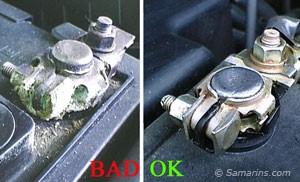 Is Battery Corrosion Safe S S Research
Is Battery Corrosion Safe S S Research
Why do car batteries corrode.

Why do car batteries corrode. Battery corrosion on your terminal and around the battery is caused by hydrogen gas that is released from the sulfuric acid located in the battery. Hydrogen gas corrosion is recognized by a white powdery substance forming around the battery terminals. Many acid batteries are filled with sulphuric acid.
Its usually due to the natural chemical processes going on inside the power pack itself that help it to store electricity. For sealed lead batteries corrosion happens once these electrolytes reach the battery terminals. If your car battery is damaged and has cracks electrolytes can leak through them.
A slow parasitic battery drain is common in many devices. Flooded lead acid batteries have a higher chance to corrode. This makes the battery lose voltage and so the alternator tries to charge the battery to make up for this loss of power.
One of the most common causes of overcharging is a bad cell in the battery. It will slowly discharge the batteries until theyre dead. Also overcharging and copper clamps reactions are reasons for corrosion.
When combined with other elements this causes a corrosive residue to form. This is due to copper sulfate as the product of a chemical reaction between the copper in the terminal clamp moisture in the air lead in the battery post sulfuric acid in the battery and excess electricity. Generally if the corrosion is occurring on the negative terminal your system is probably undercharging.
The reason S OME car batteries corrode. Most batteries are filled with sulfuric acid and a by-product of heating or cooling this acid which happens when the battery is charging or discharging is that it produces hydrogen gas. If you notice corrosion on your battery clean the terminals and cable connectors right away.
Additional elements contribute to. Im sure youve seen this before. If battery corrosion is present on the positive battery terminal this is a symptom of overcharging.
Sometimes this vapor is vented out of the top vent blocks on the battery but other times small amounts of this vapor leak out in the area between the posts and where they seal to the plastic battery casing. As the temperature of your battery alternates between hot and cold gases escape from the battery through vents on the battery. This means even after several efforts your car engine just wont power on.
A misfiring engine is the most common and direct effect of car battery corrosion. Causes of Car Battery Corrosion. They will discharge even quicker when small trickle currents slowly drain the battery parasitic drain.
These gases mix and react with other elements around the battery causing the corrosion you see. Car battery converts the acid into electrical current. Once the gasses react they begin to produce a corrosive environment.
Overfilling your battery with battery water can also lead to battery corrosion. Corrosive liquids or gases from inside the battery escaping and reacting with the metal contacts and battery terminals causing them to corrode. Corrosion on battery terminals is very common and affects mostly vehicles with a lead-acid battery.
If you see corrosion or build-up on the positive terminal of your car battery it will generally have a bluish or greenish color to it. Chances are there hydrogen gas leaked into the battery and entered the atmosphere. Corrosion on the battery One of the most common symptoms of a battery terminal issue is visible corrosion.
Car battery corrosion is usually caused by hydrogen gas being released from the battery acid. Consequently this leads to a dead battery or batteries which will out-gas and corrode. Then it creates a reaction with other atmosphere substances and thus the battery terminal gets corroded.
The corrosion hampers the battery terminals from conducting electricity properly leading to low voltage transfer to the starter. However your car battery can have corrosion if it has surpassed its lifespan. There are several possible causes but they all boil down to the same thing.
Corrosion this blue-ish dust on the batterys terminals happens only on lead-acid batteries and it is caused by the hydrogen gas that acid releases when it reaches certain temperatures. Battery corrosion is caused by hydrogen gas being released from the sulfuric acid inside the battery. Battery corrosion around the posts of the battery is caused by the sulfuric acid and hydrogen gas vapor that can escape from the battery.
It mixes with other things in the atmosphere under the hood and produces the corrosion you see on the terminals.
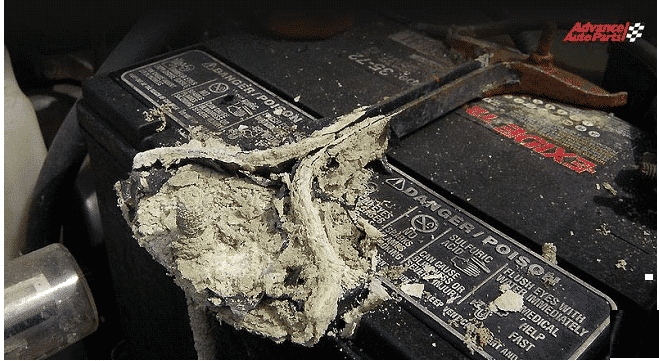 How To Clean Car Battery Corrosion Know Before You Go Tricks5
How To Clean Car Battery Corrosion Know Before You Go Tricks5
 Why Do Battery Terminals Get Corroded Sue S Car Care Tips Highway Tire Auto Service In Mount Holly Nj Southampton Nj And Newfield Nj
Why Do Battery Terminals Get Corroded Sue S Car Care Tips Highway Tire Auto Service In Mount Holly Nj Southampton Nj And Newfield Nj
What Causes Car Battery Corrosion 6 Reasons To Answer Your Queries
 How To Remove Battery Corrosion In 6 Simple Steps Go Auto
How To Remove Battery Corrosion In 6 Simple Steps Go Auto
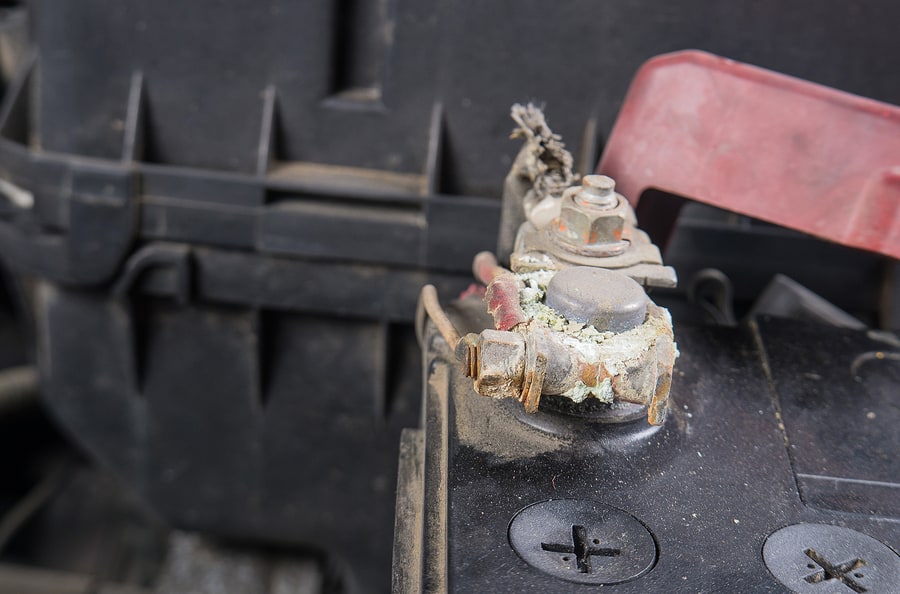 Don T Clean The Corrosion On Your Car S Battery Without Reading This
Don T Clean The Corrosion On Your Car S Battery Without Reading This
 Corroded Battery Terminals And Cola Standard Battery
Corroded Battery Terminals And Cola Standard Battery
Cleaning A Corroded Car Battery With Coca Cola News About Energy Storage Batteries Climate Change And The Environment
 How To Remove Battery Corrosion In 6 Simple Steps Go Auto
How To Remove Battery Corrosion In 6 Simple Steps Go Auto
How Can I Maintain My Car Battery And Avoid Battery Corrosion
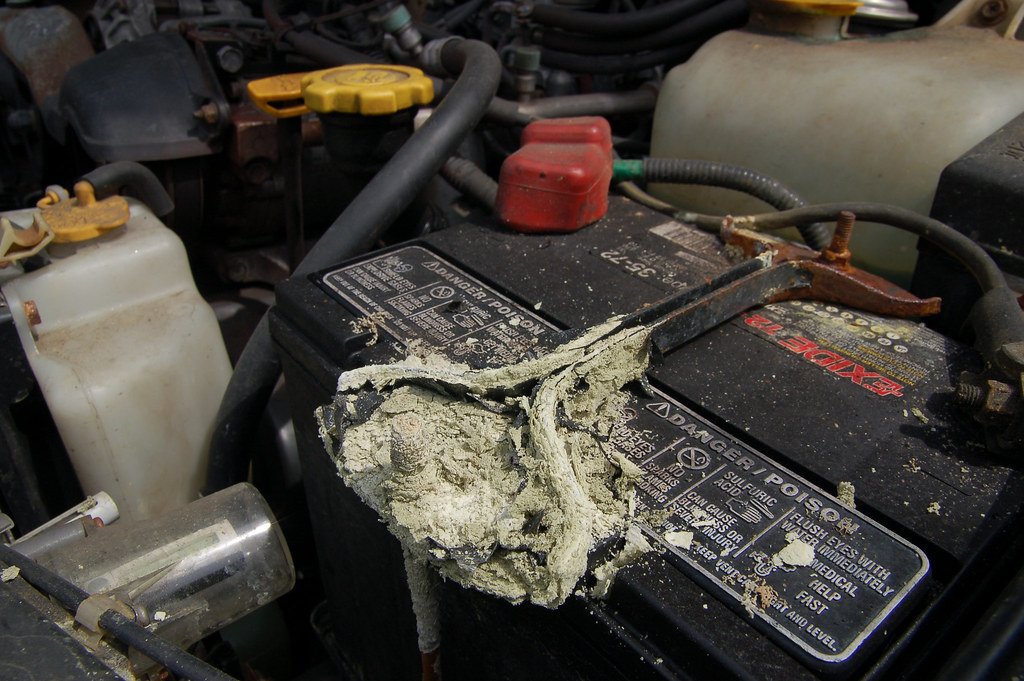 Warning Signs Of Car Battery Corrosion Aamco Minnesota
Warning Signs Of Car Battery Corrosion Aamco Minnesota
 How To Clean Car Battery Corrosion 3 Simple Steps To Follow
How To Clean Car Battery Corrosion 3 Simple Steps To Follow
 What Causes Corrosion On Car Batteries Carcarehunt
What Causes Corrosion On Car Batteries Carcarehunt
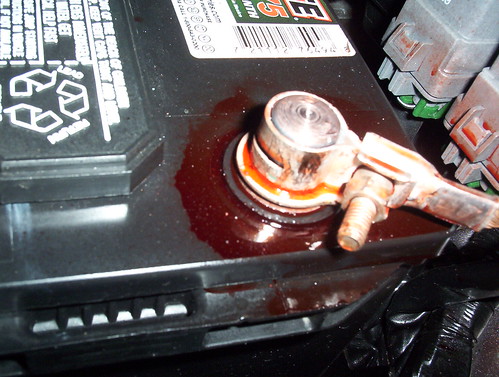 3 Ways To Prevent Car Battery Corrosion Car Dealership In Manassas Va
3 Ways To Prevent Car Battery Corrosion Car Dealership In Manassas Va
How To Safely Remove Car Battery Corrosion Auto Trends Magazine
Comments
Post a Comment